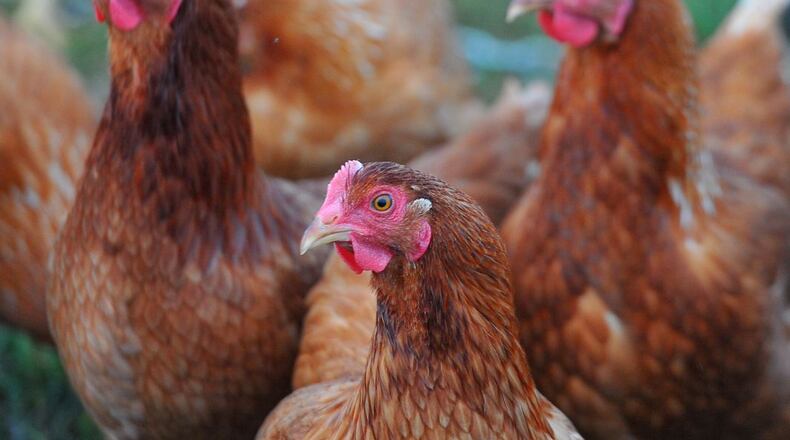Sales, markets and swaps involving live poultry can resume in Georgia, state agriculture officials announced Monday evening, lifting a ban on the activities that had been in place since a deadly strain of bird flu rocked the industry last month.
In January, broiler chickens at a commercial poultry facility in Elbert County tested positive for the H5N1 strain of Highly Pathogenic Avian Influenza. The cases were the first in a commercial poultry facility in Georgia since an unprecedented global outbreak began in 2022.
Days later, the virus was detected in another commercial poultry plant nearby in the same county. Georgia Department of Agriculture staff responded to the cases and culled 175,000 chickens between the two flocks.
Georgia produces more chickens for meat than any other state. In an effort to prevent new cases and damage to the state’s powerhouse poultry industry, GDA instituted an immediate ban on “poultry activities” after the detections.
The agency also established a control area with a 6.2-mile radius around the sites of the two detections in northeast Georgia. Poultry facilities within the perimeter were subject to movement restrictions and enhanced testing.
While chicken and eggs were still available and safe to purchase from grocery stores, the ban brought an immediate halt to all markets, swaps, sales and exhibitions in Georgia.
After weeks of surveillance, the GDA says those activities can now resume. Following the initial detections, the agency said it conducted 4,541 tests representing 49,951 individual birds and found no additional cases of H5N1.
In announcing the end of restrictions, GDA also said it was lifting the control perimeter.
Georgia Agriculture Commissioner Tyler Harper cheered the news, but warned poultry producers must remain vigilant to prevent more infections.
“While this announcement is a great step in the right direction, HPAI remains a significant threat to our #1 industry, and the Georgia Department of Agriculture will continue working around the clock to protect our state’s flocks and to keep prices as low as possible for Georgia consumers,” Harper said in a statement.
H5N1 has sickened or resulted in the deaths of millions of birds and mammals globally, sending egg prices skyrocketing and sparking fears that it could trigger a pandemic in humans. The virus has also been found in nearly 1,000 dairy cow herds across the U.S., but not in Georgia cows so far. For now, the Atlanta-based Centers for Disease Control and Prevention categorizes the threat of the virus to the public as low.
About the Author
Keep Reading
The Latest
Featured



